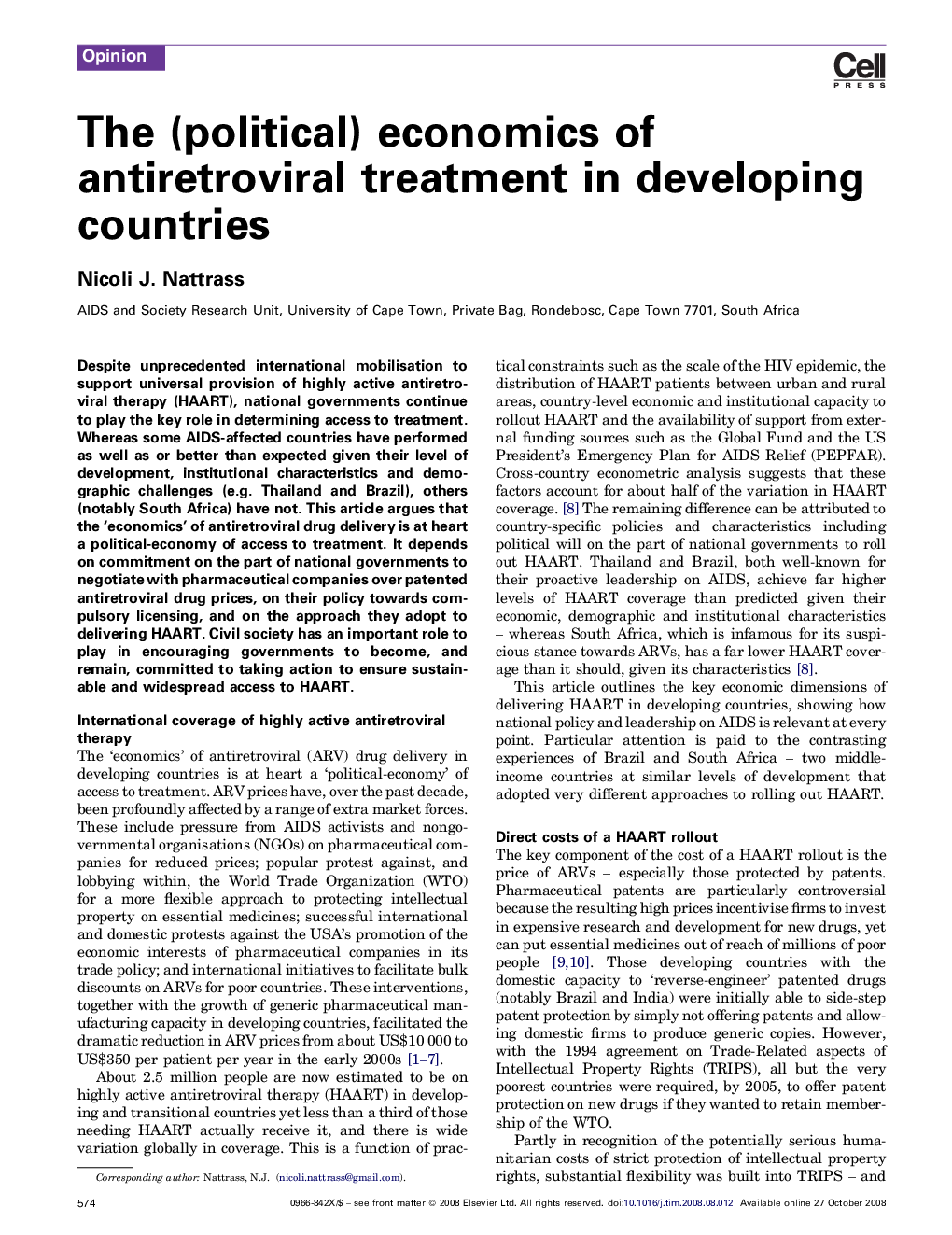| Article ID | Journal | Published Year | Pages | File Type |
|---|---|---|---|---|
| 3422489 | Trends in Microbiology | 2008 | 6 Pages |
Despite unprecedented international mobilisation to support universal provision of highly active antiretroviral therapy (HAART), national governments continue to play the key role in determining access to treatment. Whereas some AIDS-affected countries have performed as well as or better than expected given their level of development, institutional characteristics and demographic challenges (e.g. Thailand and Brazil), others (notably South Africa) have not. This article argues that the ‘economics’ of antiretroviral drug delivery is at heart a political-economy of access to treatment. It depends on commitment on the part of national governments to negotiate with pharmaceutical companies over patented antiretroviral drug prices, on their policy towards compulsory licensing, and on the approach they adopt to delivering HAART. Civil society has an important role to play in encouraging governments to become, and remain, committed to taking action to ensure sustainable and widespread access to HAART.
